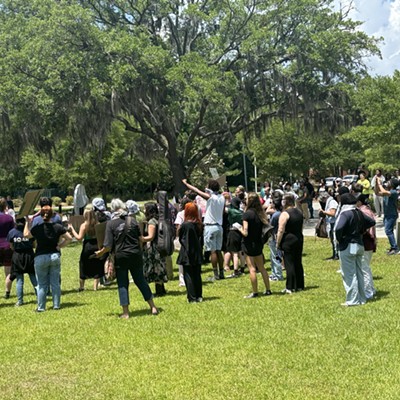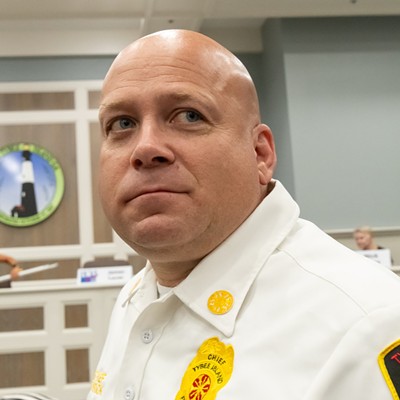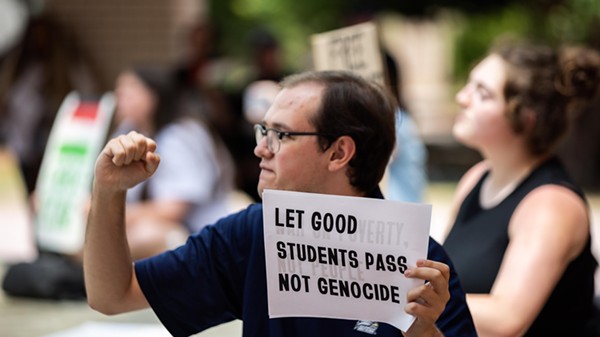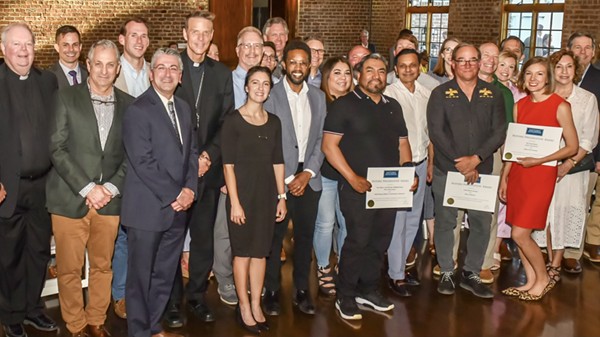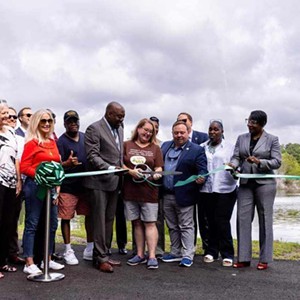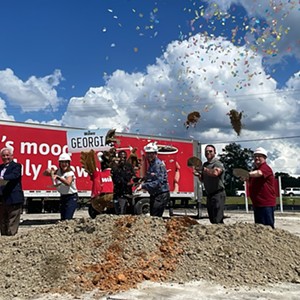"Saved to save"
[
{
"name": "Air - MedRect Combo - Inline Content 1",
"component": "14680855",
"insertPoint": "7",
"requiredCountToDisplay": "5",
"parentWrapperClass": "fdn-ads-inline-content-block"
},{
"name": "Air - MedRect Combo - Inline Content 2",
"component": "14680856",
"insertPoint": "15",
"requiredCountToDisplay": "9",
"parentWrapperClass": "fdn-ads-inline-content-block"
},{
"name": "Air - SVP - Leaderboard - Inline Content - 2",
"component": "16852291",
"insertPoint": "10",
"requiredCountToDisplay": "10",
"parentWrapperClass": "fdn-ads-inline-content-block"
},{
"name": "Air - SVP - Leaderboard - Inline Content - 3",
"component": "16852292",
"insertPoint": "20",
"requiredCountToDisplay": "18",
"parentWrapperClass": "fdn-ads-inline-content-block"
},{
"name": "Air - SVP - Leaderboard - Inline Content - 1",
"component": "16852290",
"insertPoint": "25",
"requiredCountToDisplay": "22",
"parentWrapperClass": "fdn-ads-inline-content-block"
}
]
One of the surest signs of the start of the Christmas season is the appearance of Salvation Army bell ringers and their kettles in front of many local businesses.
But have you ever stopped to wonder where the money you drop in the kettle goes?
The money we raise during Christmas helps sustain the services we provide the year round, says Salvation Army Business Administrator Linda H. James.
Most people dont realize the broadness of our Christmas programs, she says. How we do at Christmas makes a difference in what we can do throughout the year.
In addition to manning the kettles, the Salvation Army also collects toys for needy children and food for hungry families. But as broad as the Christmas programs are, theyre just the tip of the iceberg.
In Savannah, the Salvation Army provides an emergency shelter program for the homeless, a family assistance program that helps prevent homelessness, and a drug and alcohol rehabilitation program. It also provides disaster relief, and social development activities for all ages.
When the G-8 Summit came to town, the Salvation Army helped out. We served over 8,000 meals for the law enforcement people, James says. During the recent hurricanes, Our mobile feeding canteen went to Florida and served thousands of meals, she says.
At a time when faith and values has become the latest catch phrase, the Salvation Army practices what it preaches.
I believe its because were faith-based, says Maj. Henry Hunter, corps director in Savannah. We stand on the word of God.
Hunter is also the minister of the Savannah church. His wife, Cheryl, also is a major and serves as his co-officer.
A Salvation Army officer has to marry another Salvation Army officer, James says. They come together and work together.
Although James is not an officer, she is considered a soldier in the Salvation Army. Members of the Salvation Army wear military-style uniforms.
The officers wear red epaulets, James says. My epaulets are blue.
James not only is a soldier in the Salvation Army, she has worked for the Salvation Army for 25 years. Its an organization based on our belief in the Lord Jesus Christ, and because of that, we believe the Salvation Army is a vehicle to help others in need, she says.
Although the Salvation Army is a church that holds Sunday School, worship and evening services every Sunday, the people who utilize its services dont have to belong to the church, and they dont have to attend its services to qualify for help.
We show our love of Jesus Christ through the services we provide, James says.
One of the tenets of the Salvation Army is that it affirms the Biblical value of providing services to people in need, even when the Gospel is not being verbally shared.
Its not our goal to preach at people, James says. Our goal is to set an example. We want others to see Jesus Christ through us and hope that our actions speak volumes.
James joined after marrying her husband. I didnt grow up in the Salvation Army, she says.
My husband grew up in the Salvation Army, and my in-laws went into full-time service and have become full-time officers themselves. After we married, I started attending church there, then I started working there, James says.
I came to love the Army, what it stands for and what it does. Its a challenging job, but its the most fulfilling Ive ever done. I get a lot of satisfaction from helping others.
Hunter also did not grow up in the church. I didnt meet the Salvation Army until 1975, he says. I was 25 years old and the only reason I went then was because Id just gotten saved.
Hunters boss at Sears and Roebuck belonged to the Salvation Army and invited Hunter to come along. I said I wouldnt go to the Salvation Army because those people were weird, he says with a smile.
Yet when I got there, I felt so much love, Hunter says. They loved me unconditionally. I wasnt a number, I was an individual. I went back the next time by myself.
Hunter became an officer because God called me. I tell people all the time if they can be happy doing anything else, by all means do it.
Hunter says he has found true happiness is his calling, although the hours are long and the pay is little. Im not in this for the money, he says.
There are hardships, including relocating every so often. The Army has moves three times a year, Hunter says. Normally you serve four, five, sometimes seven years in a place.
When Hunter was assigned to Savannah, he got a call June 25 from his divisional commander, telling him to report to Savannah by the following Wednesday.
On Sunday, he and Cheryl told their congregation goodbye. That gave them two days to make the move to Savannah.
Over the years, the Hunters have been assigned to Greenville, S.C., Winston-Salem, N.C., and Brunswick, Waycross, Marietta, Rome, Albany and Warner Robins in Georgia. Ive been told Ill be in Savannah for seven years, he says.
At each different posting, the list of Hunters responsibilities grows, but his pay doesnt. All things fall back on me, he says. If something goes wrong, they come to me.
But helping others makes it all worth while. We are getting people who their whole lives have made bad choices, Hunter says. We have just six months to help them make the right choices.
He notes the story of one man who came into the drug and alcohol program and completely turned his life around.
He is head of his shift, Hunter says. He still comes by here to be encouraging to others. Were his family. You cant get that in a paycheck.
How does Savannah stack up against other postings? Hunter says theres a great need for services here, but also a community with a big heart.
People are generous, he says. When youre doing a program and are honest with people, people are generous.
Last year, the Salvation Army provided services to thousands of men, women and children. People are either referred or come to us on their own, James says. We work with a collaborative of other agencies. Savannah has a good network.
People who come to the shelter get more than a bed for the night. We also do case management and assessment to help them become self-sufficient, and provide clothing through the thrift store, James says.
Shelter residents also are fed. In the morning, they get breakfast. At lunch, shelter residents and people working get lunch. In addition to its annual community Thankgiving meal, the Salvation Army serves a daily evening meal that is open to the public. Anyone who is in need can come and eat in the evening, James says.
People need assistance for many reasons. No two stories are the same, James says. They might be similar, but theres always something different. Hopefully, we can recognize their other needs.
According to their 2003 annual report, 1,584 men were admitted to the Savannah Salvation Army shelter, while 584 women were admitted. There also were 315 children.
The children in the shelter have a terrific program, James says. We have an after-school tutorial program, so they are not in the shelter all evening. There is recreation, as well. The shelter kids participate in sports such as basketball, baseball and other athletic activities. There also is a game room.
The tutorial program is open to other children in the community. Its based in the Salvation Armys community center on Bee Road.
We have over 60 to 70 kids a day, James says. Volunteers come in from The Landings to provide homework help and remedial assistance. We have had good outcomes with this program.
At the beginning of the year, 21 percent of students enrolled in the program were failing one or more subjects at school. Of that group, 97 percent improved with a final grade of 80 or above, and 79 percent maintained or improved their academic standing.
Other programs for children include character building programs, a recreation and sports program, a summer camp and summer day camp, and the Kids Cafe, which provides a hot meal every day. It is conducted in collaboration with the Second Harvest Food Bank of Coastal Georgia.
Of the families that enter the shelter program, most are single-parent families. This year, thereve been more two-parent families than weve seen in a long time, James says. There are various reasons for this. Some might have lost their jobs.
There are 120 beds in the shelter. Shelter residents who do not see a case manager after a period of time are asked to move on. The purpose of the program is to help them help themselves, James says.
We do have house rules, she says. We do not let anyone in if they are under the influence of drugs or alcohol. There is a certain time they have to be in. Often, a lot of people have not had this type of structure in their lives. Its very important to have this type of structure.
The Project Share Program tries to prevent homelessness. Its a family assistance program that helps individuals and families who are facing eviction, or who need assistance with utilities, rent, medical prescriptions, clothing, groceries and furnishings.
The Salvation Army works in partnership with Savannah Electric to help the needy with utility costs.
Periodically, Savannah Electric sends out information in inserts to ask people to give a dollar or two extra on their utility bills, James says. Its quite an extensive process. We verify income and do everything we can to make sure the person is eligible for assistance.
Applicants must meet income requirements and have a good reason -- illness, loss of a job -- to get assistance. We want to keep people in their homes so they dont have to come to the shelter, James says. Its been a great program for the community.
The Salvation Army also has a healthcare program. The J.C. Lewis Health Center comes in once a week and helps with medical assessments, James says.
We try to be holistic and look at the whole person in trying to see what their needs are, she says. We look at them socially, physically and mentally. Everything we do is for the clients benefit.
The Corps Salvage Rehabilitation Program is a six-month, in-house drug and alcohol program. We maintain 25-30 beds (in this program), James says. We have Alcoholics Anonymous and Narcotics Anonymous meetings, substance abuse counseling. Its a spiritual program, and we believe that their relationship with the Lord Jesus Christ is what keeps them clean and sober, James says.
The League of Mercy is a group of volunteers sponsored by the Salvation Army that visits nursing homes on a regular basis. Participants in the drug and alcohol program join the league in these visits at least once a month.
We have a lot of talented people who find themselves in this situation, James says. Theyre really very good people who find themselves in a situation they cant handle.
Funding is always a critical issue. Most people think the programs are supported by the United Way, James says. The United Way supplies 12 percent of our entire budget.
Programs that are supported by the United Way are the social development programs at the community center and the social service programs that provide emergency assistance and shelter services.
Programs that are not supported by the United Way are the drug and alcohol programs and the worship programs. That means the Salvation Army must raise 88 percent of the money needed to fund its programs.
The thrift shops help fund the drug and alcohol programs. The bell ringers bring in needed funding at Christmas, and retail companies help out with programs.
There also is a mail appeal, but by far the biggest fundraiser is the kettle program. We raise $109,000 in just the kettle alone, James says. This year, our goal is $125,000.
Who are the bell ringers? We try to get volunteers, James says. Many civic groups in Savannah participate. Some stores let their employees take a day.
When there arent enough volunteers, bell ringers are hired. While that helps bring in money, it also takes money away to pay their wages.
Volunteers also help in the thrift store and warehouse, and do clerical work and other office duties. Many want to come and work in the soup kitchen to prepare and serve meals, James says. We serve 250 to 350 meals per day.
Despite the good it does, the Salvation Army has fallen on hard times. This year was tough financially for us, James says. its been that way ever since 9/11.
Donations are down. Hunter says programs have not been cut, but they may have to be if the situation doesnt improve.
All money raised in Savannah stays in Savannah. Our only funds come from local funds, James says.
The Salvation Army is known as one of the best-kept secrets, she says. It also is known as being able to get the most out of each dollar raised.
People who want to volunteer or donate items or money can call 651-7420 or 1-800-SAL-ARMY. There is a website at www.salvationarmyusa.org that includes information on Savannah.
This year, theres been some controversy over the banishment of bell ringers and kettles at Target stores. Hunter notes that the kettles are banned at other national outlets, including Home Depot, Lowes, Best Buy and others.
Were disappointed, but we respect their decision, he says. Kroger has been really good to us. I dont know what wed do without Kroger.
No matter what the future holds, Hunter plans to continue to fight the good fight in the Salvation Army.
Im in it for Jesus, he says. Ill be faithful to Him. w
This is the second in a series on faith and values in the local area. To comment on this article, e-mail us at
But have you ever stopped to wonder where the money you drop in the kettle goes?
The money we raise during Christmas helps sustain the services we provide the year round, says Salvation Army Business Administrator Linda H. James.
Most people dont realize the broadness of our Christmas programs, she says. How we do at Christmas makes a difference in what we can do throughout the year.
In addition to manning the kettles, the Salvation Army also collects toys for needy children and food for hungry families. But as broad as the Christmas programs are, theyre just the tip of the iceberg.
In Savannah, the Salvation Army provides an emergency shelter program for the homeless, a family assistance program that helps prevent homelessness, and a drug and alcohol rehabilitation program. It also provides disaster relief, and social development activities for all ages.
When the G-8 Summit came to town, the Salvation Army helped out. We served over 8,000 meals for the law enforcement people, James says. During the recent hurricanes, Our mobile feeding canteen went to Florida and served thousands of meals, she says.
At a time when faith and values has become the latest catch phrase, the Salvation Army practices what it preaches.
I believe its because were faith-based, says Maj. Henry Hunter, corps director in Savannah. We stand on the word of God.
Hunter is also the minister of the Savannah church. His wife, Cheryl, also is a major and serves as his co-officer.
A Salvation Army officer has to marry another Salvation Army officer, James says. They come together and work together.
Although James is not an officer, she is considered a soldier in the Salvation Army. Members of the Salvation Army wear military-style uniforms.
The officers wear red epaulets, James says. My epaulets are blue.
James not only is a soldier in the Salvation Army, she has worked for the Salvation Army for 25 years. Its an organization based on our belief in the Lord Jesus Christ, and because of that, we believe the Salvation Army is a vehicle to help others in need, she says.
Although the Salvation Army is a church that holds Sunday School, worship and evening services every Sunday, the people who utilize its services dont have to belong to the church, and they dont have to attend its services to qualify for help.
We show our love of Jesus Christ through the services we provide, James says.
One of the tenets of the Salvation Army is that it affirms the Biblical value of providing services to people in need, even when the Gospel is not being verbally shared.
Its not our goal to preach at people, James says. Our goal is to set an example. We want others to see Jesus Christ through us and hope that our actions speak volumes.
James joined after marrying her husband. I didnt grow up in the Salvation Army, she says.
My husband grew up in the Salvation Army, and my in-laws went into full-time service and have become full-time officers themselves. After we married, I started attending church there, then I started working there, James says.
I came to love the Army, what it stands for and what it does. Its a challenging job, but its the most fulfilling Ive ever done. I get a lot of satisfaction from helping others.
Hunter also did not grow up in the church. I didnt meet the Salvation Army until 1975, he says. I was 25 years old and the only reason I went then was because Id just gotten saved.
Hunters boss at Sears and Roebuck belonged to the Salvation Army and invited Hunter to come along. I said I wouldnt go to the Salvation Army because those people were weird, he says with a smile.
Yet when I got there, I felt so much love, Hunter says. They loved me unconditionally. I wasnt a number, I was an individual. I went back the next time by myself.
Hunter became an officer because God called me. I tell people all the time if they can be happy doing anything else, by all means do it.
Hunter says he has found true happiness is his calling, although the hours are long and the pay is little. Im not in this for the money, he says.
There are hardships, including relocating every so often. The Army has moves three times a year, Hunter says. Normally you serve four, five, sometimes seven years in a place.
When Hunter was assigned to Savannah, he got a call June 25 from his divisional commander, telling him to report to Savannah by the following Wednesday.
On Sunday, he and Cheryl told their congregation goodbye. That gave them two days to make the move to Savannah.
Over the years, the Hunters have been assigned to Greenville, S.C., Winston-Salem, N.C., and Brunswick, Waycross, Marietta, Rome, Albany and Warner Robins in Georgia. Ive been told Ill be in Savannah for seven years, he says.
At each different posting, the list of Hunters responsibilities grows, but his pay doesnt. All things fall back on me, he says. If something goes wrong, they come to me.
But helping others makes it all worth while. We are getting people who their whole lives have made bad choices, Hunter says. We have just six months to help them make the right choices.
He notes the story of one man who came into the drug and alcohol program and completely turned his life around.
He is head of his shift, Hunter says. He still comes by here to be encouraging to others. Were his family. You cant get that in a paycheck.
How does Savannah stack up against other postings? Hunter says theres a great need for services here, but also a community with a big heart.
People are generous, he says. When youre doing a program and are honest with people, people are generous.
Last year, the Salvation Army provided services to thousands of men, women and children. People are either referred or come to us on their own, James says. We work with a collaborative of other agencies. Savannah has a good network.
People who come to the shelter get more than a bed for the night. We also do case management and assessment to help them become self-sufficient, and provide clothing through the thrift store, James says.
Shelter residents also are fed. In the morning, they get breakfast. At lunch, shelter residents and people working get lunch. In addition to its annual community Thankgiving meal, the Salvation Army serves a daily evening meal that is open to the public. Anyone who is in need can come and eat in the evening, James says.
People need assistance for many reasons. No two stories are the same, James says. They might be similar, but theres always something different. Hopefully, we can recognize their other needs.
According to their 2003 annual report, 1,584 men were admitted to the Savannah Salvation Army shelter, while 584 women were admitted. There also were 315 children.
The children in the shelter have a terrific program, James says. We have an after-school tutorial program, so they are not in the shelter all evening. There is recreation, as well. The shelter kids participate in sports such as basketball, baseball and other athletic activities. There also is a game room.
The tutorial program is open to other children in the community. Its based in the Salvation Armys community center on Bee Road.
We have over 60 to 70 kids a day, James says. Volunteers come in from The Landings to provide homework help and remedial assistance. We have had good outcomes with this program.
At the beginning of the year, 21 percent of students enrolled in the program were failing one or more subjects at school. Of that group, 97 percent improved with a final grade of 80 or above, and 79 percent maintained or improved their academic standing.
Other programs for children include character building programs, a recreation and sports program, a summer camp and summer day camp, and the Kids Cafe, which provides a hot meal every day. It is conducted in collaboration with the Second Harvest Food Bank of Coastal Georgia.
Of the families that enter the shelter program, most are single-parent families. This year, thereve been more two-parent families than weve seen in a long time, James says. There are various reasons for this. Some might have lost their jobs.
There are 120 beds in the shelter. Shelter residents who do not see a case manager after a period of time are asked to move on. The purpose of the program is to help them help themselves, James says.
We do have house rules, she says. We do not let anyone in if they are under the influence of drugs or alcohol. There is a certain time they have to be in. Often, a lot of people have not had this type of structure in their lives. Its very important to have this type of structure.
The Project Share Program tries to prevent homelessness. Its a family assistance program that helps individuals and families who are facing eviction, or who need assistance with utilities, rent, medical prescriptions, clothing, groceries and furnishings.
The Salvation Army works in partnership with Savannah Electric to help the needy with utility costs.
Periodically, Savannah Electric sends out information in inserts to ask people to give a dollar or two extra on their utility bills, James says. Its quite an extensive process. We verify income and do everything we can to make sure the person is eligible for assistance.
Applicants must meet income requirements and have a good reason -- illness, loss of a job -- to get assistance. We want to keep people in their homes so they dont have to come to the shelter, James says. Its been a great program for the community.
The Salvation Army also has a healthcare program. The J.C. Lewis Health Center comes in once a week and helps with medical assessments, James says.
We try to be holistic and look at the whole person in trying to see what their needs are, she says. We look at them socially, physically and mentally. Everything we do is for the clients benefit.
The Corps Salvage Rehabilitation Program is a six-month, in-house drug and alcohol program. We maintain 25-30 beds (in this program), James says. We have Alcoholics Anonymous and Narcotics Anonymous meetings, substance abuse counseling. Its a spiritual program, and we believe that their relationship with the Lord Jesus Christ is what keeps them clean and sober, James says.
The League of Mercy is a group of volunteers sponsored by the Salvation Army that visits nursing homes on a regular basis. Participants in the drug and alcohol program join the league in these visits at least once a month.
We have a lot of talented people who find themselves in this situation, James says. Theyre really very good people who find themselves in a situation they cant handle.
Funding is always a critical issue. Most people think the programs are supported by the United Way, James says. The United Way supplies 12 percent of our entire budget.
Programs that are supported by the United Way are the social development programs at the community center and the social service programs that provide emergency assistance and shelter services.
Programs that are not supported by the United Way are the drug and alcohol programs and the worship programs. That means the Salvation Army must raise 88 percent of the money needed to fund its programs.
The thrift shops help fund the drug and alcohol programs. The bell ringers bring in needed funding at Christmas, and retail companies help out with programs.
There also is a mail appeal, but by far the biggest fundraiser is the kettle program. We raise $109,000 in just the kettle alone, James says. This year, our goal is $125,000.
Who are the bell ringers? We try to get volunteers, James says. Many civic groups in Savannah participate. Some stores let their employees take a day.
When there arent enough volunteers, bell ringers are hired. While that helps bring in money, it also takes money away to pay their wages.
Volunteers also help in the thrift store and warehouse, and do clerical work and other office duties. Many want to come and work in the soup kitchen to prepare and serve meals, James says. We serve 250 to 350 meals per day.
Despite the good it does, the Salvation Army has fallen on hard times. This year was tough financially for us, James says. its been that way ever since 9/11.
Donations are down. Hunter says programs have not been cut, but they may have to be if the situation doesnt improve.
All money raised in Savannah stays in Savannah. Our only funds come from local funds, James says.
The Salvation Army is known as one of the best-kept secrets, she says. It also is known as being able to get the most out of each dollar raised.
People who want to volunteer or donate items or money can call 651-7420 or 1-800-SAL-ARMY. There is a website at www.salvationarmyusa.org that includes information on Savannah.
This year, theres been some controversy over the banishment of bell ringers and kettles at Target stores. Hunter notes that the kettles are banned at other national outlets, including Home Depot, Lowes, Best Buy and others.
Were disappointed, but we respect their decision, he says. Kroger has been really good to us. I dont know what wed do without Kroger.
No matter what the future holds, Hunter plans to continue to fight the good fight in the Salvation Army.
Im in it for Jesus, he says. Ill be faithful to Him. w
This is the second in a series on faith and values in the local area. To comment on this article, e-mail us at


